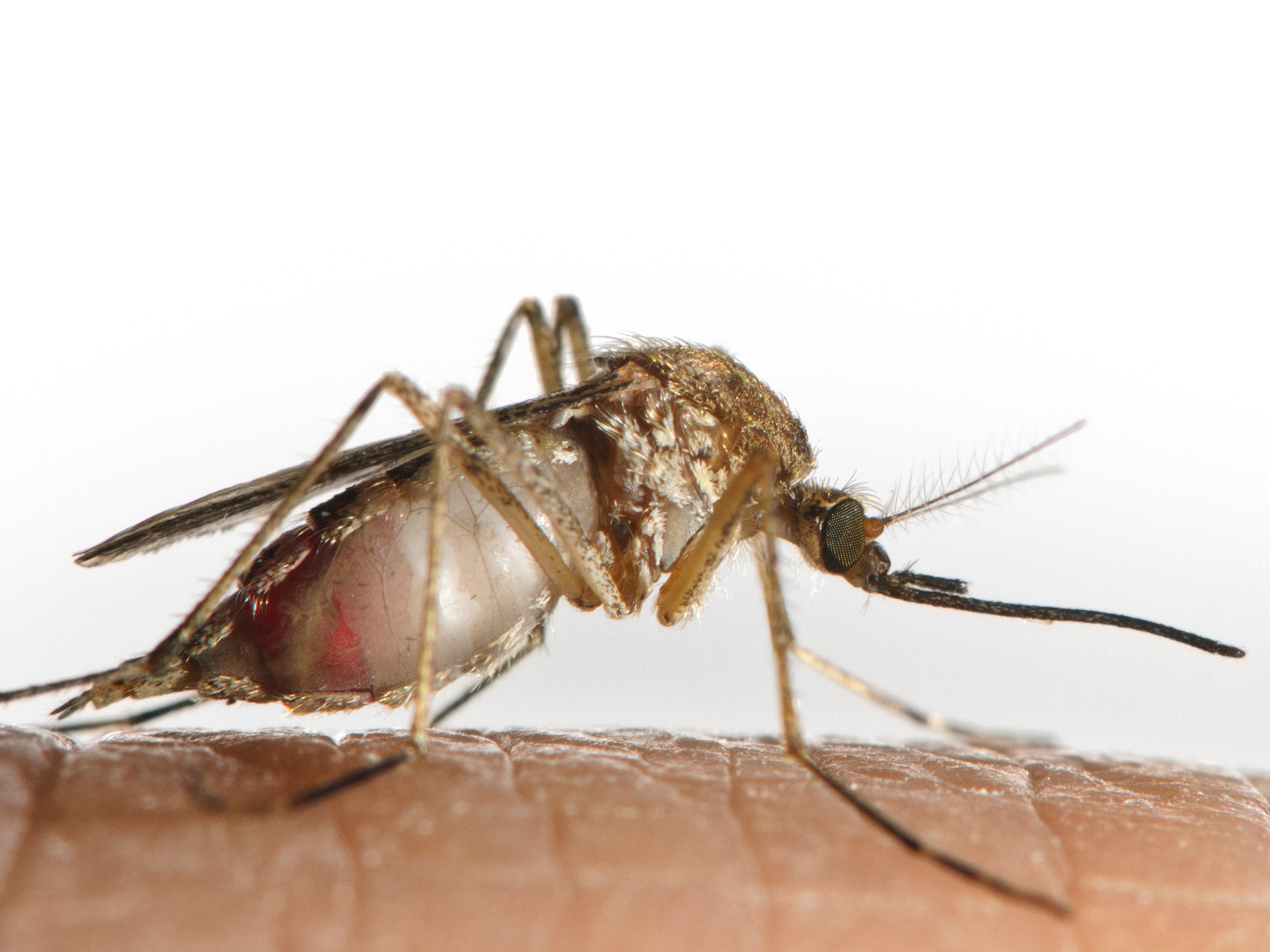Scientists discover how mosquitoes came to love the taste of humans
Parasites evolved to enjoy human blood thousands of years ago

A chemical vapour exuded from human skin became the key reason why mosquitoes turned from feeding on animals to sucking the blood of people, a study has found.
Sulcatone is an important ingredient in the distinctive human odour, and mosquitoes learnt to recognise it many thousands of years ago as a sign that they were near a source of food, scientists have discovered.
Researchers found that the present-day black-bodied mosquitoes that feed on the furry skin of forest animals do not show any preference for sulcatone, but the brown mosquitoes living in and around villages in Africa are highly attracted to the scent.
“We knew that these mosquitoes had evolved to love the way we smell,” said Leslie Vosshall of Rockefeller University in New York, who led the study published in the journal Nature.
“It was a really good evolutionary move. We provide the ideal lifestyle for mosquitoes. We always have water around for them to breed in, we are hairless and we live in large groups,” Professor Vosshall said.
The scientists identified a group of 14 genes in the mosquito genome that are strongly linked to their love of humans and one odour receptor in particular – called Or4 – stood out as being highly active in the human-preferring mosquitoes.
They linked the Or4 receptor with one of many compounds collected from human skin that form part of the natural scent of people. This was the key that locked the mosquito to the smell of its new human host.
Join our commenting forum
Join thought-provoking conversations, follow other Independent readers and see their replies
Comments
Bookmark popover
Removed from bookmarks